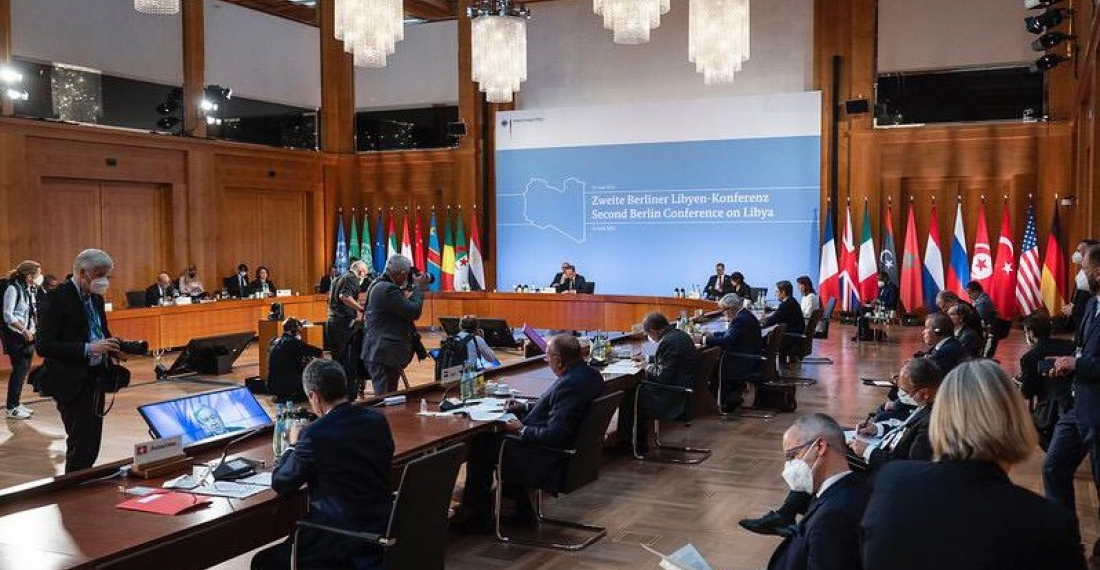Germany hosted the Second Berlin Conference On Libya (Berlin II) on Wednesday (23 June) to discuss the Libyan peace process and ways the international community can support the transitional government as it prepares for elections in December and addresses with key economic and security files. The conference was hosted by the German government and the United Nations.
A statement at the end of the conference suggesting that the situation in Libya has improved significantly since Berlin I particularly with regards to the end of hostilities, lifting of the oil shutdown, and the initiation of political dialogue under the auspices of the UN.
The statement however added that "more needs to be done to address and resolve the underlying causes of conflict, consolidate Libyan sovereignty, build on the progress made, and restore peace and prosperity for all Libyans."
The statement included a reaffirmation by participants to "refrain from interference in the conflict or in the internal affairs of Libya".
The UN Secretary-General António Guterres gave video remarks in which he commended the work in progress towards full implementation of the Political Roadmap; the Ceasefire Agreement of October 2020; and the relevant Security Council resolutions, including resolution 2570 concerning the monitoring of the ceasefire, and holding elections.
High Representative of the European Union Josep Borrell also gave remarks to the conference and said that there are two important milestone ahead.
"We have to prepare the elections by the end of the year in order to give legitimacy to the government and we have to ensure that the ceasefire will continue. For that, we need the withdrawal of the foreign troops – all foreign troops. So, two important things: to hold elections and to keep the ceasefire."
In the final statement, Turkey introduced a reservation on the clause calling for the withdrawal of all foreign forces and mercenaries without delay. Following the conference, German Foreign Minister Heiko Maas said he believed that Turkey and Russia could have an understanding about the gradual withdrawal of forces from Libya.
Maas added that the most challenging task is unifying the military institution and repairing the infrastructure. Libyan foreign minister Najla Al-Mangoush said that "there's progress in the issue of foreign forces and mercenaries' withdrawal" and she hopes their withdrawal from both sides will start in the coming days."
UNSMIL head, Jan Kubis welcomed the 'Conference Conclusions' and praised the collective efforts to assist the Libyan people.
Read the Conference Conclusions here.






